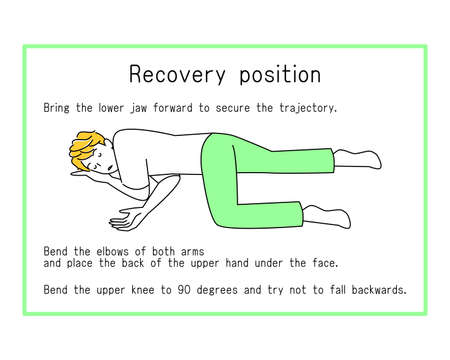What to do in cases of spiking?
In the last few of weeks, Berlin has been shaken by needle-spiking incidents, joining the number of European cities facing significant spiking problems for the past couple of years.
Over the last years, the incident reports in UK and Ireland, Netherlands, Belgium, and France have been increasing in number. Lately, using needles to administer drugs without consent has come forward as a common phenomenon. In Berlin, multiple accounts and stories have emerged regarding incidents of spiking in the last couple of weeks. Although there seem to be some geographical clusters nowhere is exempt from spiking attacks. Public discourse has been strong on the matter, increasing awareness.
This article provides a tool kit on what to do in a case of spiking and offers concrete action steps:
- What can governments do?
- What can clubs/ promoters do?
- What can the community do?
Spiking incidents have extremely low conviction rates, especially needle spiking. This is not surprising considering 98% of spiking victims do not report the incidents, according to the social enterprise Stamp Out Spiking (SOS). The narrow time frame possible to detect drugs adds to this low turnout. That is why we need to share the responsibility in approaching this issue as it is not something the victim should be dealing with alone. It is vital to stop victim shaming, trust people’s stories and have an intersectional approach.
What can Governments do?
In March this year, Bristol City Council, in the UK was given £282,000 of Home Office funding to improve safety for those on a night out.
After 617 cases of drink spiking were reported during two months, the local MP urged the police “need to investigate” and “prosecute if necessary”.
In an attempt to target perpetrators and not focus on victim-blaming, “one hundred and fifty-four venues across the city have drink testing kits inside their venues.” explained Carly Heath, Bristol’s Nighttime Economy Advisor. “If anyone thinks they have been spiked, they or their friends can get the drinks tested at the bar, and there is a supportive process in place to test the drinks and alert the police so that we can help people at that moment.”. There are also urine testing kits for victims, in case the drink is already gone.
Each venue is given training and a guide designed to help venue teams understand the physical and psychological threat posed by drink tampering, spot suspicious activity, and act when an incident may have occurred.
With this method, CCTV is monitored and the police are informed immediately, to come to the venue in a bid to catch the perpetrator. However, police presence in clubs is widely debated, and for many is not conducive to a safer space.
Alternative measures with a focus on trained awareness teams in clubs,as well as city-backed satellite pop-up stations, where the opportunity to get drug-testing, psychological support, after-care and to report the incidents of spiking or sexual assault , could also be an effective measure to alleviate the pressure on the medical staff in emergency rooms and mitigating police presence in clubs.
Governments and policies can learn from the self-organized, community-led structures that exist in Nightlife. Club spaces often serve as ‘safe(r) space’ for marginalized communities, or as experimentation spaces for creating new forms of community care. Practices and mindsets from nightlife creators can be integrated into city strategy to promote safety, social cohesion, inclusion, and all residents’ sense of belonging.
This year the UN-Habitat’s safer cities program is hosting the first World Urban Forum to focus discourse on safer nights, highlighting the urgency and importance that governments’ across the world take this issue seriously.
What can clubs and bars do?
There have been reports that venues have not had the capacity or willingness to show support or empathy in case of spiking. In some documented instances individuals were removed from the space after gaining consciousness. Nighttime communities and cultures are loved and appreciated by many for offering safer spaces and alternative visions for our lives. With government support and funding, and training clubs and bars need to acknowledge their responsibility and rights in case of these crimes that are taking place on their premises.
- Take more responsibility by ensuring ALL staff are educated on what to do in these instances.
- Increasing security and bag checks at the door is not the solution. The general approach of clubs and bars needs to be assessed. The substances in question move very fast in the body, making them difficult to see on blood tests. Clubs and bars should set best practices for what to do in such situations.
- Start a culture of training people in nightlife.
- Listen to your guests and offer them a safe space.
- Contact medical professionals immediately.
- Have awareness teams set in clubs. Promoters and collectives all over Europe have taken it on themselves to have awareness teams and harm reduction measures set in their parties and spaces. They do not shame the individuals for being spiked and assume their responsibility on the matter. These methods work.

What can the community do?
Governments and institutions must claim responsibility for drink spiking.
However, there are clear steps that community members can do to mitigate the danger in case of spiking, as well as collecting data to ensure the crimes are taken seriously
If you or someone around you experiences sudden feelings of sleepiness, lowered inhibitions, visual problems, confusion, nausea and vomiting, loss of balance, or consciousness it may be a spiking incident.
At this point data collection is vital to understand how these attacks are being pursued, what substances are being used and which methods are being used.
- If you can, tell someone immediately. In case you cannot talk have a note or a picture on your phone that says that you think you have been spiked.
- Make sure to stay with a friend or get someone you trust to stay with you.
- Do not rely on drink check wristbands, they only test GHB, however, GBL is much more common in the market. The colour reaction is difficult to see and can vary depending on the drink, conveying a false sense of security.
- If you come across a case of spiking take the person to a quiet place, stay with them
- If you suspect a drink spike and still have some of the drink, keep hold of it. It can be used as evidence.
- Check the if there are any open wounds/blood marks to see if it could be a needle spiking incident.
- If you think a person is spiked do not give them food or water. Find a place where they can lay down.
- If they are unconscious try to get them to lay in the “recovery position”. This ensures that their airway is clear and open and prevents any vomit or fluid from choking them.
- Stay with the person and if they are not unconscious, talk with them.
- Get someone to inform the manager, bouncer, or bar staff immediately.
- If you can, contact medical professionals immediately, certain substances can only be detected for about 12 hours. The quicker the test the more likely it is that the substance will be identified.
- If you call an ambulance you do not need to tell them that substance use was involved. You only need to share the symptoms you or the person is experiencing. You do not need to share more information.
- Most drugs leave the body in 72 hours, if you do not have a chance to get a test by then try to keep a sample of the urine.
- If the clothes etc. have vomit on them, it may contain whatever drug was used. Do not wash them, they can be used as evidence.
- If you witness a spiking incident do not let the person be alone or with a stranger. Try to make sure that they’re accompanied by bar staff or awareness team members.
- After the spiking incident – If you have the strength and willingness to do so, go to the police.

The main challenge of the spiking issue is the lack of data, determined by the low detectability of substances. Another factor contributing to the low report numbers is the fear of persecution.
Not having adequate information regarding legal rights, combined with the stigmatisation of nightlife as a ‘dark’ place, prevents people from reaching out to professionals to share their experiences.
For this reason, next to medical precautions and action steps, there needs to be clear knowledge regarding the legal systems and the rights of an individual that suspects spiking. A follow-up article with an overview of the basic rights and protection measurements in club spheres will follow this article.
Spiking is a gendered issue in which victims are overwhelmingly women and nonbinary folks and the perpetrators are overwhelmingly men. The responsibility here should not be solely on women and nonbinary folks. A collective approach to this subject is integral to creating awareness and improving education around issues such as consent. Spiking is unacceptable. Club and bar staff, as well as managers and bouncers, need to have heightened awareness of predatory behaviours and have a zero-tolerance approach to sexual assault and harassment.
“Everybody in the world should be trained with awareness”
Lewamm Ghebremariam, Club Commission Roundtable
What next?
In collaboration with European Forum for Urban Security (Efus) and the Efus Women in Cities Initiative (WICI), the Global Parliament of Mayors, and UN-Habitat Safer Cities, VibeLab is hosting a series of events at the World Urban Forum that take a holistic approach to safer urban nights, showcase good practices from cities and cultural creators around the world, and finally, launching VibeLab and UN-Habitat Safer Cities’ new SAFETYLAB. There will be clear opportunities for involvement and further engagement. If you are interested in finding out more about the SAFETYLAB, get in touch with diana@vibe-lab.org
Emergency numbers to call if you suspect spiking
Valid emergency number throughout Europe – 112
UK – 999
Northern Ireland – 999
Australia – 000
Sources
- https://www.themix.org.uk/crime-and-safety/victims-of-crime/support-for-drink-spiking-44285.html
- https://www.themix.org.uk/sex-and-relationships/sexual-abuse/drug-assisted-rape-11783.html
- https://www.drinkaware.co.uk/advice/staying-safe-while-drinking/drink-spiking-and-date-rape-drugs
- https://www.cosmopolitan.com/uk/body/a38265786/injection-spiking/
- https://stampoutspiking.org/
